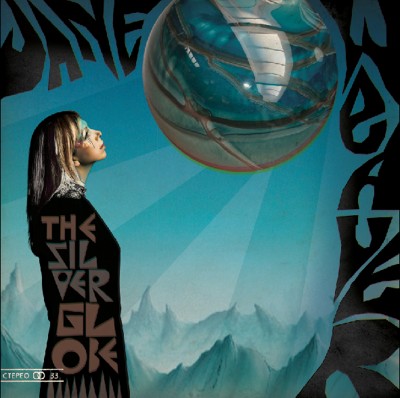Jane Weaver is a transformed woman. After years as a folky, slightly leftfield singer songwriter, The Silver Globe sees her taking a full-scale leap into the cosmic void of contemporary space rock. And it’s fantastic. As one of the main figures at the archival Finders Keepers label, Weaver’s clearly got impeccably exotic tastes, and 2010’s The Fallen By Watch Bird signposted this new direction, particularly the interstellar valediction of the title track, but The Silver Globe is arguably her most sonically adventurous work to date.
The album takes its name from Polish filmmaker Andrzej Żuławski’s sci-fi parable <a href="https://www.youtube.com/watch?v=-J-2-MGHL_w taregt="out">Na Srebrnym Globie (On The Silver Globe), shot in the mid-70s, but supressed by the communist authorities at the time due to its implicit rejection of totalitarianism. The film finally saw the light of day in 1988, and is full of striking imagery in a similar vein to Andrei Tarkovsky and Alejandro Jodorowsky. It’s hard to tell how much the film’s concepts and narrative have directly influenced Weaver, but the music sparkles with a techno-utopian sheen and speaks to an age of movie sci-fi when all kinds of philosophical ideas were routinely smuggled onto the screen, from the sublime (2001, Solaris) to the ridiculous (Barbarella, Zardoz).
The album opens with the title track, a short piece of Aphex Twin-esque ambience that conjures up the vastness of the cosmos, its spooky chirruping recurring at various points throughout the album. Then it’s time for blast off with the urgent, propulsive simplicity of ‘Argent’, the insistent drumming and pulsating bass recalling Can’s ‘Mother Sky’ channelled through the deep space filter of Hawkwind. Weaver’s voice is pure and full of humanity, but also sounds detached and unearthly, as though she’s leaving all terrestrial concerns behind. It’s a brilliant example of how to layer musical elements over a basic rhythmic framework, the coiling tendrils of synth building to a string-like intensity as the track reaches its climax.
Speaking of Hawkwind, ‘The Electric Mountain’ is cleverly based on a loop of the band’s <a href="https://www.youtube.com/watch?v=GRBmdsvz_aw" target=out">’Star Cannibal’ (from the much underrated Church Of Hawkwind album), Dave Brock’s metronomic riffing recycled into a breathless slice of upbeat space pop, with Weaver cooing "Time generated us" in its wide-eyed chorus. This feeling of cosmic joy is maintained in the lush, library music fantasia of ‘Arrows’, before the strident thunk of a drum machine heralds the oompah circus fanfare of ‘Don’t Take My Soul’. It sounds disconcertingly kooky at first, but soon reveals a gleeful robotic logic at its heart, putting me in mind of The Carpenters’ heroically odd ‘Calling Occupants Of Interplanetary Craft’. Weaver sings a series of interlocking lines at the top of her range trying to ward off some soul-stealing apparition, before the song gets sucked down a swirling analogue wormhole.
‘Cells’ is another glorious piece of synthetic womb music, its lovely ascending vocal line nagging away at my own memory cells, but before we get too comfortable, we’re back on a mission: ‘Mission Desire’, to be precise. Like a dreamy, slo-mo re-imagining of a Barry Gray theme tune (I’m thinking Space: 1999 in particular), this is slinky, super-cool cosmic funk with a great shimmery ‘bionic’ sound running in the background. "Am I still awake?" wonders Weaver, as a shard of star guitar breaks through the cryogenic haze. Awesome stuff.
The final trio of songs all mine a seam of ecstatic sadness, wisdom earned at the expense of innocence. ‘Stealing Gold’ could almost be a companion piece to Broadcast’s ‘Tears In The Typing Pool’, Weaver’s voice reverbed to the point of aural burn-out over the simple strum of an acoustic guitar. ‘If Only We’ is like a musical box drenched in echo, and then it’s the big finish of ‘Your Time In This Life Is Just Temporary’, everything receding into the distance as a piano is hammered into submission in some high-ceilinged celestial ballroom at the end of the universe.
Where so much space/kraut/psych rock quickly disappears into a formulaic miasma, referencing everything but signifying nothing, Weaver’s strong melodic sensibilities and incisive songwriting powers here alchemise raw genre material and turn it into, well, silver.
<div class="fb-comments" data-href="http://thequietus.com/articles/16473-jane-weaver-the-silver-globe-review” data-width="550">


